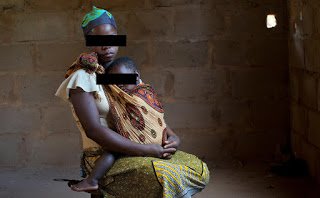Itai Muzondo
As she walks down the street, she struggles to take the next step and fears to face the world as she will now be called irresponsible young girl in the community after she fell pregnant while in school.
At 16, she is not spared from any woman’s burden; the often uncomfortable signs of pregnancy, possible complications on delivery and above all, how to cope with life as a young uneducated and unemployed mother.
Prisca Mapeture (not real name) has since been abandoned by the father of the baby she is carrying because the law does not allow marriage of children under the age of 18.
Prisca’s ordeal comes in the aftermath of the landmark Concourt anti-child marriage ruling in January 2016.
“I could not push my boyfriend to marry me as he explained that he would get arrested,” Prisca says.
“I thought it was reasonable to protect him for the benefit of our baby. Even my parents advised me the same after they met him. Surprisingly, he has since disappeared without a word,” she says.
The 17 year old boyfriend, Mpumelelo Ndlovu (not real name) has not been communicating for a while now.
Zimbabwe is, however, a signatory to various international statutes such as the Convention on the Elimination of Discrimination Against Women and the Convention on the Rights of the Child.
Analysts say Zimbabwe has failed to domesticate these statutes and also failed to harmonise the marriage laws in order to make it easy to prosecute offenders, thus the emergence of such situations.
The law actually lacks provision to prosecute people who have sexual relations with teens between 16 and 18 years old.
Section 70 of the Criminal and Codification Act of Zimbabwe says, “…where a male person engages in extra marital sexual intercourse or anal intercourse, or physical contact that a reasonable person would consider indecent with a female young person, with knowledge that the young person in under the age of 16, will be found guilty of an offence, regardless of whether the young person consented to the act.”
The Act evidently does not protect children from marriage.
The Act further contradicts with the definition given to child marriage.
UNICEF defines child marriages as, “…couples who are formally married, or who live together as a sexually active couple in an informal union, with at least one member usually the girl being less than 18 years old.”
The Marriage Act [Chapter 5:11] also provides that a girl between the ages of 16 and 18 may, with the joint consent of her mother and father, enter into a civil marriage under the Marriage Act. The Marriage Act prohibits the marriage of girl children below the age of 16 years. The Marriage Act does not however permit a boy below the age of 18 years to contract a marriage under the Marriage Act.
This leaves room for perverts to sexually exploit 16 and 17 year old girls and get away with it as the law punishes not engaging in sexual relations with such girls but marrying them.
“Currently, I have nowhere and I feel rejected. I am subjected to harsh criticism and abuse by relatives,” says a tearful Prisca.
Dewa Mavhinga, senior Africa researcher at Human Rights Watch had this to say about child marriages.
“The Zimbabwean government should show that it is serious about tackling the scourge of child marriage and raise the minimum age to 18. The future of millions of African girls depends on African leaders taking action to end a devastating practice that robs girls of education and exposes them to abuse,” says Mavhinga.
Legal expert and human rights defender, Martin Mureri of Matutu and Mureri Legal Practitioners said the loophole can only be sealed by aligning laws to the new constitution.
“Look into this issue critically; the constitution is clear that marrying someone under the age of 18 is illegal. Any other law, practice, custom or conduct inconsistent with it is invalid to the extent of its inconsistency. Without aligning marriage customs, as spelled out in Section 70 of the Criminal Codification Act, to the constitution, we will remain static in this fight,” he said.
In October 2014, two former child brides, Loveness Mudzuru and Ruvimbo Tsopodzi asked the Constitutional Court to have child marriage made a criminal offense and declared unconstitutional. They asked the court to declare 18 the minimum age for marriage and to have all marriage laws amended.
The government opposed the claim on the grounds that the applicants had not been forced into marriages, but had “simply opted to live in unregistered unions when they were minors”.
Since the Marriages Act permits girls to marry at 16 and boys at 18, “the differentiation arises from biological and psychological maturity levels for boys and girls.”
A Chiredzi legislator, who is also part of parliament team researching on the effects of child marriages across the country, Mucharairwa Mugidho, said there is urgent need to enact a law that deals solely with child marriages.
“There is an urgent need to enact a law that protects our young ones from child marriages. We have since decided as a committee to move a motion in parliament proposing an act that stipulates 18 as the rightful age for marriage. We also wish to have a law that works hand in glove with the constitution so that loopholes leading to early marriages today will be dealt with,” Mugidho said.
In a report, Legal Resources Foundation (LRF) suggests that if a law condoning child marriages is to be enacted, it should make marriage registration compulsory.
“National response mechanisms have overlooked the fact that the registrations of births and marriages will assist in combating child marriages. Although registration of births is compulsory, the law does not make the registration of marriages compulsory. Therefore if a law that tackles child marriages is to be enacted, it should make registration of marriages compulsory,” the report reads.news

